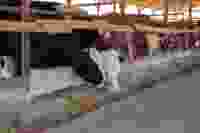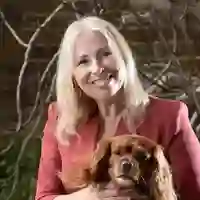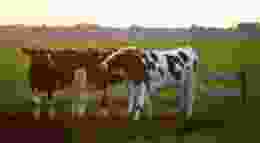
Unveiling the true cost of factory farming in the UK
We often assume we know where our taxes go, but the truth is far more complex—especially when it comes to the food we eat. The industrialisation of meat production in the UK, particularly the rise of mega-factory farms for chickens and pigs, has dramatically transformed agriculture. While this system claims to make meat cheaper at the checkout, it imposes significant "hidden meat taxes" on society. These hidden costs—environmental damage, agricultural subsidies, public health burdens, and economic inequalities—don't appear on receipts but are paid in other ways.
The pastoral image of small family farms across the British countryside is fading. In their place, colossal factory farms have emerged, housing thousands of animals in confined spaces. This shift has been most dramatic in the poultry sector. While touted as efficient, these changes carry significant hidden costs.
The Conservative Animal Welfare Foundation’s latest report ’The Hidden Harms of Factory Farms: How They Cost Taxpayers Millions’ reveals these costs, using UK government data and a survey of 1,000 residents to explore the environmental, economic, and social impacts of industrial meat production.
A striking finding is the disproportionate allocation of subsidies: the report estimates that 84.5% of subsidies that go to chicken and pig farmers are consumed by factory farms, amounting to £269 million annually. Taxpayers, therefore, indirectly sustain large-scale industrial operations rather than traditional farms.
Factory farms are also major polluters. Concentrating thousands of animals in one location produces waste that often pollutes air and water systems. The report estimates the environmental damage cost at £518 million annually. This includes water pollution from runoff, air pollution from ammonia emissions, and the destruction of ecosystems. These costs, borne by taxpayers, include clean-up efforts and healthcare expenses tied to pollution, as well as the long-term damage to biodiversity.
Living near industrial farms has been linked to serious health problems, particularly respiratory conditions like asthma. The report estimates the annual cost of increased respiratory deaths attributable to living near large factory farms is estimated to be at £92 million. These health issues strain the NHS and lower rural residents' quality of life.
Additionally, the heavy use of antibiotics in factory farming fuels antibiotic-resistant bacteria, posing significant public health risks globally.
Despite claims that factory farms create jobs, the rise of industrial meat production has coincided with an estimated loss of 14,000 farming jobs over two decades with annual salaries not paid valued at £333 million. Automation and consolidation mean fewer workers are needed, leading to rural job losses and economic decline.
When added together—subsidies, environmental damage, public health costs, and lost wages—these factors amount to over £1.2 billion annually. This "hidden meat tax" exposes the myth of cheap meat. Consumers may spend less at supermarkets, but the broader costs are unavoidable.

Despite extreme industrialisation, there's no clear evidence of significant price reductions for meat. The promised savings often fail to materialise. A survey of 1,000 UK residents found that most do not believe cheap meat justifies the harms caused by factory farms. Increasingly, people are concerned about animal welfare, environmental sustainability, and food quality.
Proponents of factory farming argue that it's essential to feed a growing population. Yet, this perspective ignores critical factors: the reliance on imported feed, the export of animal products, and the potential land savings of alternative proteins. Over-reliance on intensive meat production undermines UK food security by tying it to volatile global markets and unsustainable practices.
The findings underscore the need for policymakers to rethink the UK’s approach to intensive meat production. Recommendations include not allowing the building or expansion of new megafarm facilities( so big that they require Defra environmental permits) especially in areas that are vulnerable to river pollution and restructuring subsidies to reward small-scale farmers who grow healthier and environmentally friendly foods and champion animal welfare. Investing in alternative proteins and diversified agriculture can reduce environmental damage and enhance food security.
Consumers also have a role to play by making informed choices and supporting ethical producers, they can push for more sustainable meat options.
While the industrialisation of meat production appears to offer short-term benefits, it imposes significant hidden costs. The £1.2 billion annual hidden meat tax burdens everyone, manifesting in environmental degradation, public health challenges, and economic inequalities.
It’s time to bring these hidden expenses into public discussion about the future of food in the UK. By addressing them, we can create a more equitable and sustainable food system that benefits consumers, farmers, the environment, and public health for generations to come.

Lorraine Platt is the co-founder of the Conservative Animal Welfare Foundation












